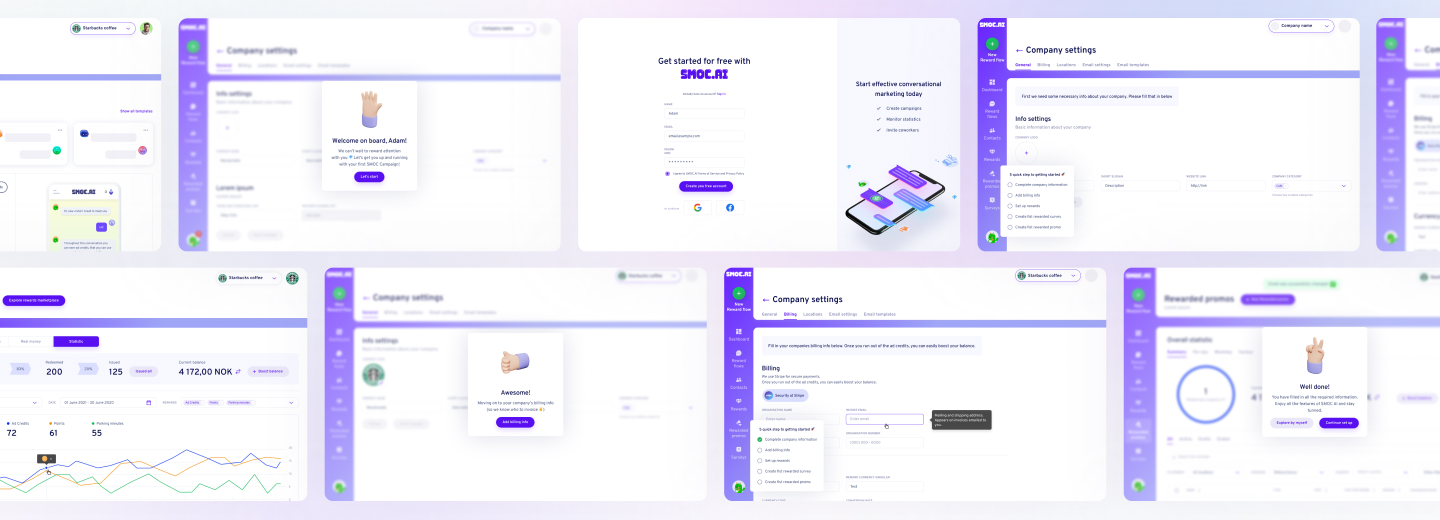In today’s rapidly evolving business landscape, the word startup has become a buzzword, often associated with innovation, disruption, and rapid growth. But not all startups are the same. Startups are not a monolithic entity; they come in various forms, and so do their objectives, organization, and difficulties.
It is essential to have a clear understanding of the various startup types to predict the development outcomes, which is important for future business owners, investors, employees, and specialists in this field.
In the following article, we will discuss the main types of startups and the differences between them.
what’s in the article
- Main Types of Startups
- Startup Industry Categories
- How to Identify Startup Type
- Conclusion
Main Types of Startups
We noted that although startups may have similarities in terms of independence and innovation, they have different visions, aims, and approaches to development. Below are different types of startups and what they entail.
Lifestyle Startups
Lifestyle start-ups are the opposite of their ‘growth-at-all-costs’ business; they are the result of passion. These are businesses that founders create based on something they are passionate about, be it photography, blogging, life coaching, graphic design, etc. It is not to gain a market share and overpower others, but to make enough money to live a comfortable and fulfilling life. These startups are focused on the satisfaction of their founders and the ability to be independent rather than growing at a fast pace.
Scalable Startups
The scalable startups are the driving forces in the startup world that have the potential to grow at a rapid pace. Just like Uber or Airbnb at the beginning, created to scale up and target huge markets. Those who launch start-ups with the potential of growing them into large companies must go for venture capital financing and look to change industries. Many of these startups are in the technology start up industry, and the strategies and structures of the organizations do not have to grow in direct proportion to their size.
Small Business Startups
These are the new generation of organizations that make up the majority of business formations globally. Some of the small businesses include restaurants, retail shops, service industries, and family businesses. Rather than the orientation towards startup growth and expansion, this business is about catering to a particular audience and providing people with permanent work. Despite this, many people may not recognize the importance of small business startups in their communities.
Social Impact Startups
Social impact startups are organizations or businesses that have the primary purpose of addressing social, environmental, or humanitarian issues. They do not work for the sake of making money, but for the sake of creating a difference in society. This can be startups that focus on clean energy solutions, education, or health care. These ventures are an attempt at fusing nonprofit values into business structures to create positive change.
Buyable Startups
Some startups are created to sell the startup to another company, which means that buyable startups are built with an ultimate goal in mind. The founders of these startups intend to create something that has not been offered before, grow it rapidly, and attract buyers from large companies. These startups are especially popular in the technological industry, in which large companies buy small, talented teams to build up their skills or shut down the competition.

Looking to Build an MVP without worries about strategy planning?
EVNE Developers is a dedicated software development team with a product mindset.
We’ll be happy to help you turn your idea into life and successfully monetize it.
Startup Industry Categories
Startups exist in dozens of industries, the nature of the market, the level of innovation, and the customers’ needs can vary significantly. This means that the startup model or its MVP can be implemented in nearly every industry out there, although some industries are more popular among start-ups and investors. Below, let us take a closer look at some of the most significant startup industry categories that are driving innovation.
Tech Startups
Tech-based startups are the future of the tech industry. These companies apply technology to solve problems in new, more scalable methods, whether the problem is in building applications, developing platforms, or even building devices. Technology startups are usually the pioneers of change and how we interact with technology in our daily lives, and they are always the most appealing to investors because of the impact and growth they hold.
SaaS Startups
Software as a Service startups provide their clients with software that is hosted in the cloud, where the client can access it via a subscription. These startup categories are not capital-intensive or require any form of maintenance, and are widely embraced by both business people and individuals since they are easy to access. Some examples of business applications are project management tools, CRM systems, and online learning platforms.
AI Startups
Modern technology startup companies are on the way to achieving the next generation of digital technology. Such types of tech startups are those that specifically develop products and services implemented based on machine learning, natural language processing, computer vision, or any other related AI tools. These types of startups are changing the face of numerous startup sectors like the financial sector, health care sector, logistics, etc, and making the processes intelligent and optimized.
Blockchain Startups
The blockchain startups sectors have adopted decentralized ledger technology to foster more transparency, security, and diverse innovation in several sectors. However, the blockchain concept is not just limited to cryptocurrency as it is applied in areas such as supply chain, voting, identity, and contracts. These startup categories are enhancing the commencement of transactions and their operation on the Internet.
E-commerce Startups
E-commerce startups are companies that undertake the sale and purchase of goods and services via technology systems. These are firms conspicuous by the recent rise in online selling, efficient supply chain management, satisfaction of the consumer, or brokers of buyers and sellers. There isn’t much to say about most e-commerce startups, but branding, user experience, and data marketing.
HealthTech Startups
HealthTech start-ups are new generation organizations to revolutionize the current state of health care and its delivery and use of systems. From wearables to telemedicine, diagnostics, and health data, these are useful and are needed in today’s environment. They are not only improving the services offered to the patients but also helping the doctors to provide better services by embracing technological advancements.

Proving the Concept for FinTech Startup with a Smart Algorithm for Detecting Subscriptions

Scaling from Prototype into a User-Friendly and Conversational Marketing Platform
Why Startup Type Matters
Selecting a type of startup is not just about what your business will be called; it also determines how you are going to fund it, how your team will grow, and what you want to achieve in the future. It is worth stating that each type of startup has its potential, risks, and expectations.
For instance, a lifestyle startup is associated with freedom and sustainability, while a scalable startup is associated with fast growth and investors’ returns. Knowing your startup type guides you, directs you to make good decisions, and enables you to express yourself well to the people you need to sell to, such as investors, partners, and customers.
How to Identify Startup Type
It is essential to identify what type of startup you are constructing to ensure that your idea is realistic. To establish the type of startup you need, there are certain parameters that you have to consider, most importantly, your business model and your target customers. These factors define how you will develop, the clients you will target, and the needs that you will require.
Startup’s Business Model
This is what your startup is built on: your business model outlines how you generate and capture value. Is it an item you are selling, a service you are providing, or an online platform you are developing? If you have to bet on the general user adoption and positive network effects, you are likely to create a scalable or buyable startup. If your goal is to be sustained by the generated income to become independent, your model might be closer to what a small business or lifestyle start-up has. Understanding the sources of revenue in a company is very helpful in categorizing it into a particular type of startup.
Target Market
The nature of the audience that a startup targets and the size and/or specialization of that audience can greatly define the type of startup. The startups that are looking to tap a huge market, where adoption outcomes in exponential growth, fall under the scalable or tech startup category.
On the other side, businesses that are local or niche might be small businesses or lifestyle businesses. Market sizing and understanding the market needs and behavior provide directions on how to grow and position your startup.

Need Checking What Your Product Market is Able to Offer?
EVNE Developers is a dedicated software development team with a product mindset.
We’ll be happy to help you turn your idea into life and successfully monetize it.
Conclusion
There are various types of startups – some of them may have their main objective of coming up with the idea and delivering the same, while others may focus on the delivery issue and constant enhancement. Regardless of whether a startup is tech-enabled, community-enabled, or mission-enabled, it helps to understand the type of startup to act accordingly. Once a business model is fully understood, the target audience, long-term objectives, and the vision, then it will be easier to steer in that direction and thereby generate something which is more in tune with the values and objectives.
If you are having difficulties in determining what you need or in terms of the next step, you can contact EVNE Developers for assistance. Our team has vast experience in startup development and digital product design, providing consultations and assistance based on your startup type. Whether you need help with product ideation, technology stack, or growth plan, we are ready to bring your idea to life.
In 2025, the most popular startup types in terms of investors’ interest are AI, HealthTech, and SaaS startups since they are high-growth and have a high demand.
No, the startup industry is the broader category under which the startup operates (for example, e-commerce or healthcare), and the business model is how the startup makes money.
Of course, there may be cases where startups are in two categories at once, for instance, an AI-based SaaS is both a tech and a scalable startup.

About author
Roman Bondarenko is the CEO of EVNE Developers. He is an expert in software development and technological entrepreneurship and has 10+years of experience in digital transformation consulting in Healthcare, FinTech, Supply Chain and Logistics.
Author | CEO EVNE Developers


















